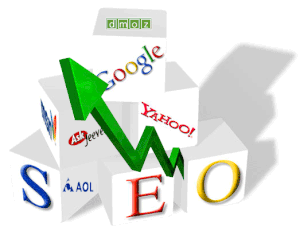The search engines have evolved a great deal in the last fifteen years. They’ve gotten a lot smarter, meaning that it’s not easy for a website to get a good search ranking. Back in the day, website owners would cram lots of keywords into the meta title, description, and keyword tags in the code and get noticed by the search engines. Now it’s not so easy. In fact, stuffing keywords anywhere can get you penalized. The search engines don’t pay all that much attention to meta data now. They are much more focused on content quality, relevant links, and social data when determining a search engine result page ranking. So this raises the question, does meta data even matter anymore? The answer is, yes it does. While it may not play such a huge role in ranking as it did back in the day, it’s still considered to be an SEO best practice to include it.
Even if the search engines don’t care all that much about meta data anymore, it still plays an important function. Meta tags can be seen by potential website visitors, and provides them with information about the site.
Let’s start with the title tag. The title tag is the clickable link on a search engine results page. It’s the first thing that a search engine spider sees, but it’s also the first thing that a potential visitor to your site notices while browsing the search engine results page. If it includes the keywords that they used while searching, they will be that much more likely to click over to the page. Search engine users are looking for quick answers. It’s important for the title tag to qualify the visitor. Once they click on the page, the title tag is what appears at the top of the browser window.
The meta description tag is used in the search engines as the quick snippet of information that can be seen directly below the title tag on a search engine results page. Since the title tag should only be 70 characters long, it doesn’t allow for much explanation of the content on the page. This is why the meta description is important. It’s almost a sales pitch for the webpage. It should include keywords, but not in a spammy way. In case the title tag isn’t enough, the meta description is the place to really persuade the visitor and prove that your page is the place that they need to be. Remember, it’s important to limit the meta description to 150 characters or less and include a unique description for every page of content. Every page is different, so the meta tags should be different too.
Because many website owners abused the keyword meta tag (and even went so far as to include keywords that weren’t relevant to the page at all but generated a lot of searches), the search engines don’t really look at it. It also doesn’t show up anywhere on the search engine result page, unlike the title and meta description. In reality you could probably get away with not including it. However, it can help internally just to stay organized. Including 2-5 of the most relevant keywords in the keywords meta tag is a way to keep track of what keywords you are targeting on that page and serves as a reference when creating a link building campaign.
Meta tags certainly don’t guarantee any kind of search engine ranking, but they do have their place. Well-written meta tags will benefit website visitors and help to keep your website and SEO organized and on track.





